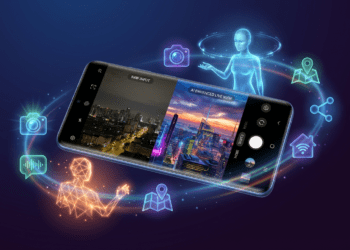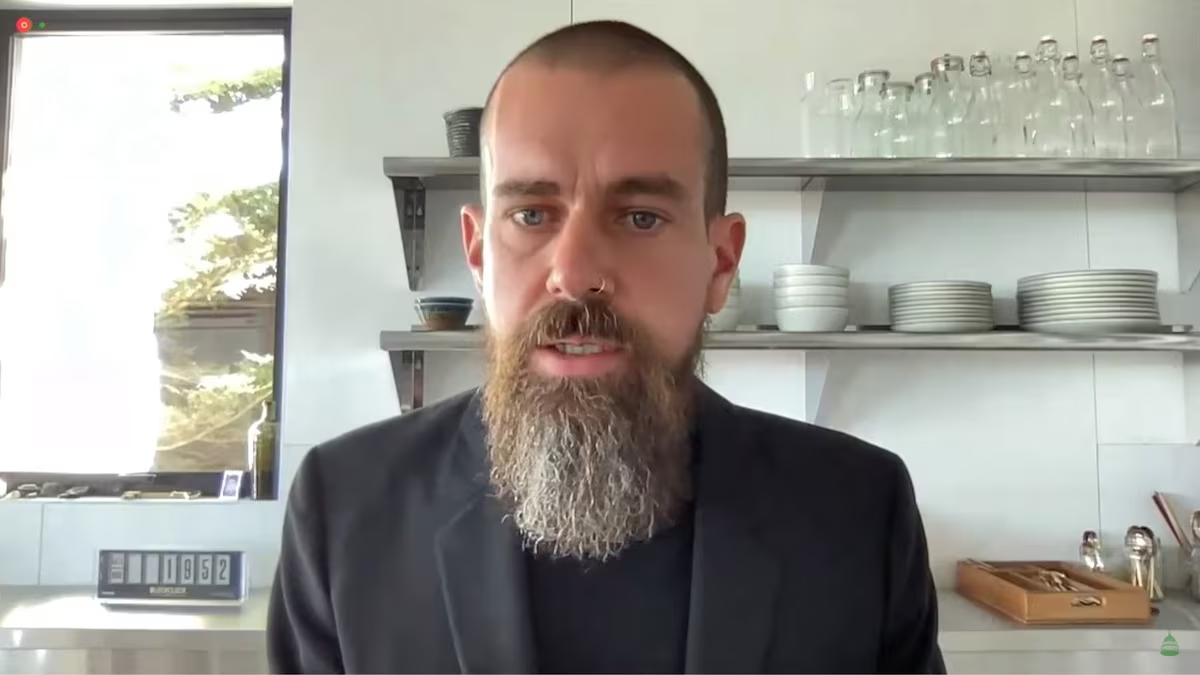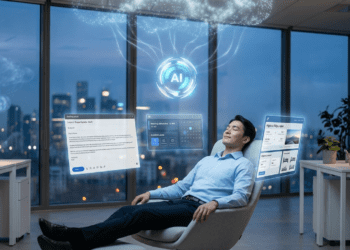The artificial intelligence landscape has erupted into a high-stakes legal battle as Elon Musk’s xAI company, alongside his social media platform X, filed a lawsuit against tech giants Apple and OpenAI on Monday, August 25, 2025. The lawsuit, filed in the U.S. District Court for the Northern District of Texas, accuses both companies of engaging in anticompetitive practices that allegedly stifle innovation and maintain illegal monopolies in their respective markets.

The Core Allegations: A Tale of Two Monopolists
The lawsuit presents what Musk’s legal team describes as “a tale of two monopolists joining forces” to maintain their market dominance. According to the complaint filed in Texas court, Apple and OpenAI have allegedly “colluded” to maintain monopolies in the smartphone and generative AI markets, effectively creating barriers for competitors like xAI’s Grok chatbot.
The central claim revolves around Apple’s exclusive partnership with OpenAI, which integrates ChatGPT into iPhones, iPads, and Mac devices. Musk’s companies argue this arrangement gives OpenAI unfair access to potentially billions of user prompts from hundreds of millions of Apple devices, creating an insurmountable competitive advantage.
“In a desperate bid to protect its smartphone monopoly, Apple has joined forces with the company that most benefits from inhibiting competition and innovation in AI: OpenAI, a monopolist in the market for generative AI chatbots,” the lawsuit states, as reported by The Verge.
App Store Rankings Under Fire
A significant portion of the lawsuit focuses on Apple’s App Store practices. Musk’s companies claim that Apple has been “deprioritizing” rival chatbots and “super” apps, including Grok and X, while favoring ChatGPT in its rankings and promotional features.
The controversy began when Musk noticed that despite Grok receiving high user ratings and downloads, it failed to appear in Apple’s coveted “Must-Have Apps” section. According to Gizmodo’s reporting, ChatGPT was allegedly the “only” AI chatbot featured in this prominent section as of August 24, 2025.
This disparity prompted Musk to publicly accuse Apple of committing “an unequivocal antitrust violation” on his X platform. He claimed Apple was “behaving in a manner that makes it impossible for any AI company besides OpenAI to reach #1 in the App Store.”
The Business Impact: Billions at Stake
The financial implications of this alleged anticompetitive behavior are substantial. The lawsuit seeks to recover “billions in damages” and requests a permanent injunction to block the exclusive Apple-OpenAI arrangement. Musk’s legal team argues that the partnership creates a “moat” that protects OpenAI’s market position while simultaneously harming competitors’ ability to attract investment and talent.
According to Ars Technica’s analysis, the exclusive deal gives OpenAI access to what could represent “up to 55 percent of all potential generative AI chatbot prompts,” based on Siri’s 1.5 billion daily user requests in 2024.
The lawsuit suggests that this massive data advantage makes it nearly impossible for competitors to scale effectively. “The network effects are so strong that despite billions in investments by established tech companies, no competitor has been able to challenge ChatGPT’s stranglehold on the market,” the complaint alleges.
Apple’s Strategic Concerns About Super Apps

The lawsuit reveals interesting insights into Apple’s strategic thinking regarding AI and smartphone competition. According to the filing, Apple executive Eddy Cue allegedly expressed “worries that AI might destroy Apple’s smartphone business,” particularly due to patterns observed in foreign markets where super apps like WeChat in China have gained significant traction.
Musk’s companies argue that Apple fears X could use Grok to create a comprehensive “super app” that might reduce users’ dependence on sophisticated smartphones. This concern allegedly motivated Apple’s decision to partner exclusively with OpenAI rather than offering similar integration opportunities to other AI companies.
The lawsuit claims that Apple has rejected “numerous requests by xAI for the Grok app to be featured in the App Store,” including when the app launched and when X debuted Grok’s new “Imagine” feature. Additionally, the complaint accuses Apple of “delaying approval for updates to xAI’s Grok app” as another method to reduce competition.
The Financial Structure of the Apple-OpenAI Deal
One particularly intriguing aspect of the lawsuit involves the financial arrangements between Apple and OpenAI. According to the complaint, “OpenAI has provided ChatGPT to Apple for free and is functionally paying for the arrangement itself.” This unusual structure raises questions about the true motivations behind the partnership.
The lawsuit suggests that OpenAI is “willing to sacrifice short-term profits in exchange for such access” to maintain its market dominance. Meanwhile, Apple allegedly has no expectations for immediate financial gains, planning only to take an “eventual cut” of OpenAI’s monetization efforts through Apple devices.
This arrangement strikes Musk’s legal team as suspicious, particularly given that Apple could theoretically offer similar deals to multiple chatbot makers. “By making the deal exclusive, Apple sacrificed the profits it would have earned had it integrated with multiple generative AI chatbots,” the lawsuit notes.
Industry Responses and Ongoing Feuds
The lawsuit represents the latest chapter in an ongoing feud between Musk and OpenAI CEO Sam Altman. The two tech leaders have a complicated history, having co-founded OpenAI together in 2015 before Musk departed in 2018 due to disagreements over the company’s direction.
OpenAI’s response to the lawsuit was swift and pointed. A company spokesperson told The Verge that “this latest filing is consistent with Mr. Musk’s ongoing pattern of harassment.” This statement references OpenAI’s previous allegations that Musk has engaged in a “years-long harassment campaign” against the company.
Apple, for its part, has maintained that its App Store is “designed to be fair and free of bias” and features “thousands of apps” using various ranking signals. The company has not yet provided a detailed response to the specific allegations in Musk’s lawsuit.
Previous Legal Battles and Failed Acquisition Attempts
This lawsuit is far from Musk’s first legal challenge against OpenAI. He previously sued the company in 2024, accusing it of breaching its founding mission by prioritizing commercial interests over developing AI “for the benefit of humanity broadly.” That lawsuit was later withdrawn, only for Musk to file another suit months later with expanded allegations.
The relationship between the two parties became even more strained when Musk led a $97.4 billion bid to acquire OpenAI in February 2025. Altman rejected the offer with a characteristically sarcastic response on X: “No thank you but we will buy twitter for $9.74 billion if you want” – notably $34 billion less than Musk paid for the platform.
Market Dynamics and Competitive Landscape
The lawsuit highlights the intense competition in the rapidly evolving AI market. According to the filing, OpenAI already controls at least 80 percent of the chatbot market, making it extremely difficult for competitors to gain meaningful market share. ChatGPT’s integration into Apple’s ecosystem potentially solidifies this dominance by providing access to an enormous user base and valuable training data.
The complaint argues that in a truly competitive market, “usage of chatbots would be determined by customer choice” and “generative AI chatbots would vigorously compete with one another.” Instead, the alleged anticompetitive conduct has “prevented this competition by handing a substantial portion of the market to ChatGPT.”
Implications for Innovation and Investment
Beyond immediate market share concerns, the lawsuit raises broader questions about innovation in the AI sector. Musk’s companies argue that the Apple-OpenAI arrangement could discourage investment in competing AI technologies, as “investors face significant risk in backing anyone but the dominant market leader.”
This dynamic could have far-reaching consequences for the development of AI technologies and applications. The lawsuit suggests that Apple’s conduct “inhibits the growth of AI and super apps by allowing OpenAI to maintain its monopoly and curtail innovation and investment in generative AI chatbots.”
Looking Forward: Legal and Market Implications

As this legal battle unfolds, it could have significant implications for how tech companies structure partnerships and compete in the AI space. The case will likely test the boundaries of antitrust law in the context of emerging technologies and exclusive platform arrangements.
The outcome could influence not only the specific relationship between Apple and OpenAI but also broader industry practices regarding AI integration, app store policies, and competitive behavior in the technology sector. For consumers, the resolution of this dispute may ultimately determine the level of choice and innovation available in AI-powered applications and services.
The lawsuit represents more than just a business dispute – it’s a fundamental disagreement about how the AI industry should develop and who should control access to the technologies that are increasingly shaping our digital lives. As the case proceeds through the courts, it will undoubtedly continue to generate significant attention from industry observers, regulators, and consumers alike.
Sources
- The Verge – Elon Musk’s xAI is suing OpenAI and Apple
- Gizmodo – The Feud Between Grok and ChatGPT Just Got Real
- CNBC – Musk’s xAI sues Apple, OpenAI alleging anticompetitive scheme harmed X, Grok
- Ars Technica – Elon Musk sues Apple and OpenAI, revealing his panic over OpenAI dominance
- The New York Times – Elon Musk’s xAI Sues Apple and OpenAI Over Claims It Is Being Shut Out
- Breitbart – ‘A Tale of Two Monopolists:’ Elon Musk’s xAI Sues Apple and OpenAI Claiming Anticompetitive Practices








